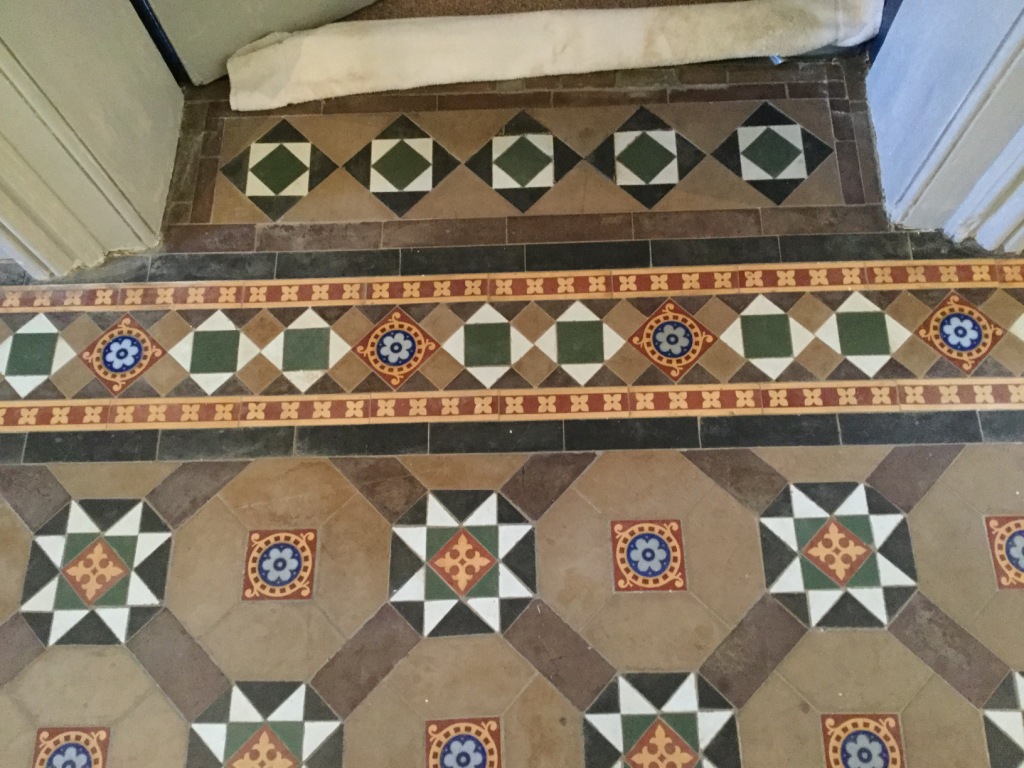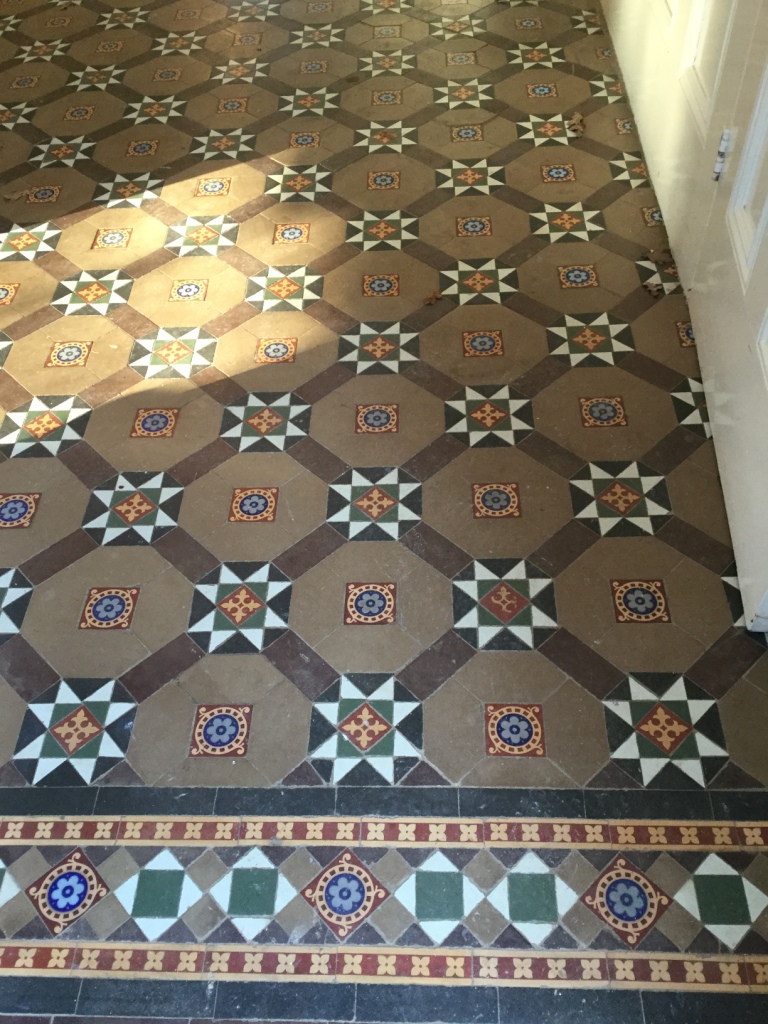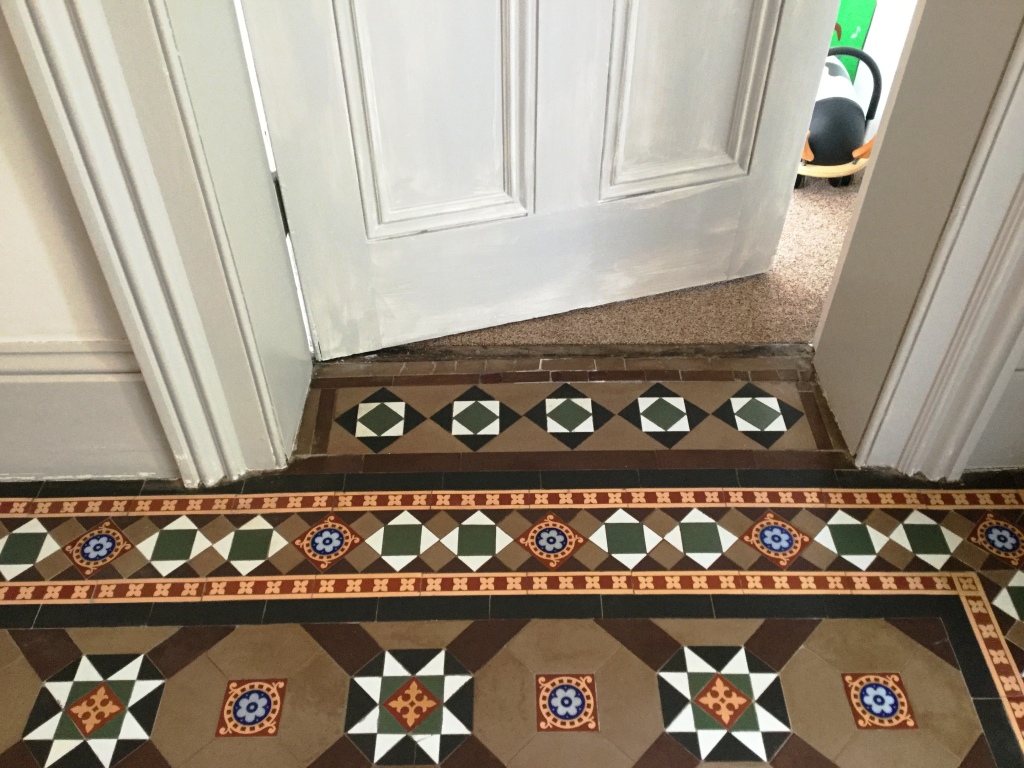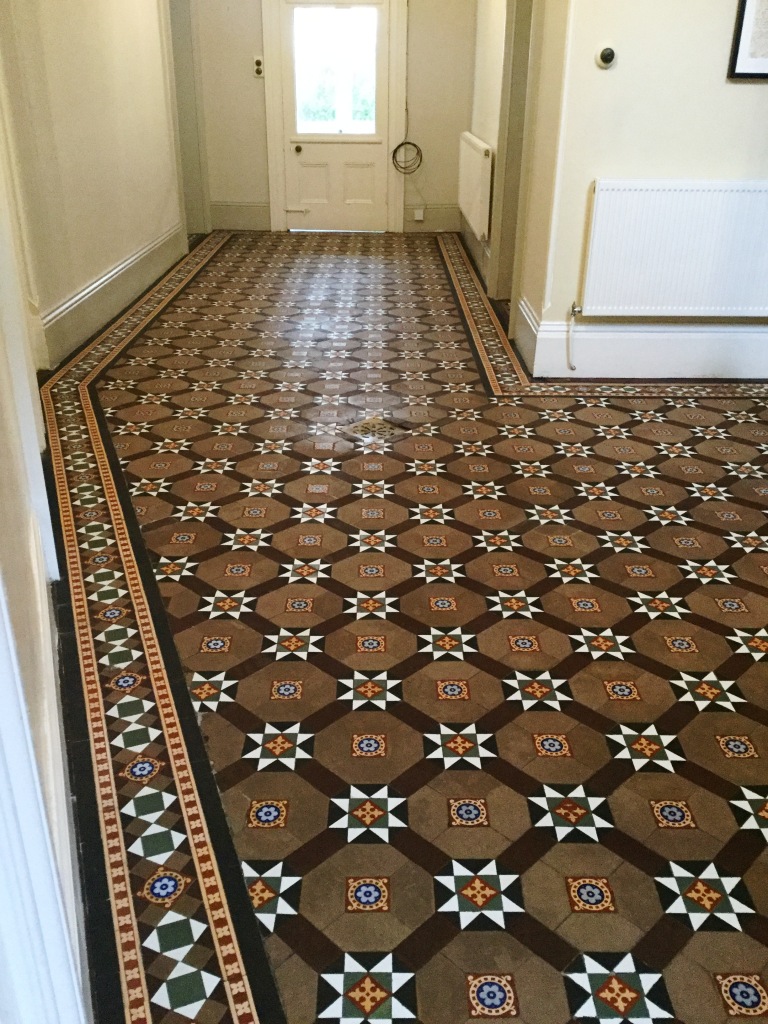 |
 |
Deep Cleaning a Victorian tiled hallway floor
My first course of action was to vacuum the floor to remove light dust and debris, this was followed by applying Tile Doctor Pro-Clean diluted with warm water spraying several metres at a time. The solution was allowed to soak in for a short while before being agitated with a rotary machine fitted to a rotary machine and a stiff grout brush which was run along the grout lines. The section of floor was then rinsed with water and then this was extracted with a wet pick up machine. This process was then repeated through the entire area. I then switched to a new cleaning process for Victorian tiles that was taught on a recent Tile Doctor training course. Basically it involves using a special diamond impregnated burnishing pad fitted to a rotary machine to resurface the tiles using just water. Again I worked in small sections until I had covered the entire area. A common issue with these old Victorian floors is they were usually laid without a damp proof course; as a result it’s not uncommon for white salt deposits (efflorescence) to appear a few days after cleaning. To counteract this I gave the floor an acid wash using Tile Doctor Acid Gel, leaving it to dwell before rinsing. This helps neutralise the tile and will combat any salts rising up through the floor later.Sealing a Victorian tiled hallway floor
I returned the following day to carry out repairs and to re set a couple of loose tiles which is not unusual for a floor of this age. The floor was then left to dry for a further day with a dehumidifier on site before returning to seal the floor with a breathable sealer for which we used two coats of Tile Doctor Colour Grow. Colour Grow does a really good job protecting tiles as it soaks into the pores of the tile enhancing its colours whilst protecting from within however it leaves a matt finish and the customer wanted a sheen finish. This would not be a problem to achieve however it would require the application of another product and I was still concerned about potential efflorescence issues which would be more difficult to resolve with the application of a further sealer so I agreed to return several weeks later to finish the job, As agreed I returned a few weeks later which allowed the floor to dry and guard against any damp issues and on my return I was happy to confirm the floor had fully dried using my damp meter and further there were no signs of efflorescence. I then applied 5 coats of Tile Doctor Seal & Go to give the customer the required finish she was after.
I also left the client a free sample of our cleaning solution Tile Doctor Neutral Clean together with written maintenance instructions to help keep the floor looking its best for years to come.

Source: Tile Cleaning and Restoration in Northamptonshire